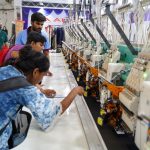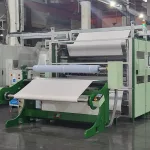Jay Katari is planning to open new thrift stores across the U.S. as part of a major effort to transform the recycling industry and keep used clothing, household items and other used textiles from winding up in America’s overflowing landfills.

Jay Katari : “We have employees all around the country supporting our recycling operations and giving a new life to used clothing.”
Boca Raton, FL : Jay Katari, a leading social and environmental entrepreneur from South Florida, recently announced plans to open new thrift stores across the United States as part of a major effort to transform the recycling industry and keep used clothing, household items and other used textiles from winding up in America’s overflowing landfills. According to the U.S. EPA Office of Solid Waste, Americans throw away more than 68 pounds of clothing and textiles per person per year. Clothing and other discarded textiles represent about four percent of the municipal solid waste stream.
Jay Katari started South Florida Textile Recycling, Inc. in 1998, placing 24 collection bins in Palm Beach and Broward counties. Since then, Katari began 10 more clothing collection businesses across a dozen states recycling more than 25 million pounds of second hand clothing and shoes every year. “In a difficult economic climate, when millions of Americans are living at or below the poverty line, second hand clothing allows the less fortunate to purchase brand name quality clothing at a small fraction of the regular retail price,” says Jay Katari, “we have employees all around the country supporting our recycling operations and giving a new life to used clothing.”
Recycling containers are placed conveniently in parking lots that encourage consumers to recycle. All of the unwanted items deposited into the bin are then collected, processed and eventually sold by thrift and used clothing stores . In 2008, Jay Katari opened his first 45,000 sq/ft retail store called Mega Thrift in Winston Salem, NC. I have opened 8 more stores in Texas and Florida and North Carolina totaling almost 200,000 square feet of retail space with plans to open 3 more stores each year. The stores employ more than 250 people and provide a very convenient, friendly shopping experience for their customers.
“Most of us don’t fully understand the environmental impact of the clothes we wear every day,” Jay Katari explains, “The cost and labor of manufacturing, the raw materials, transportation and washing, all take a toll on the environment. We are helping to reduce our environmental footprint and make life a little better for those less fortunate than us.”







